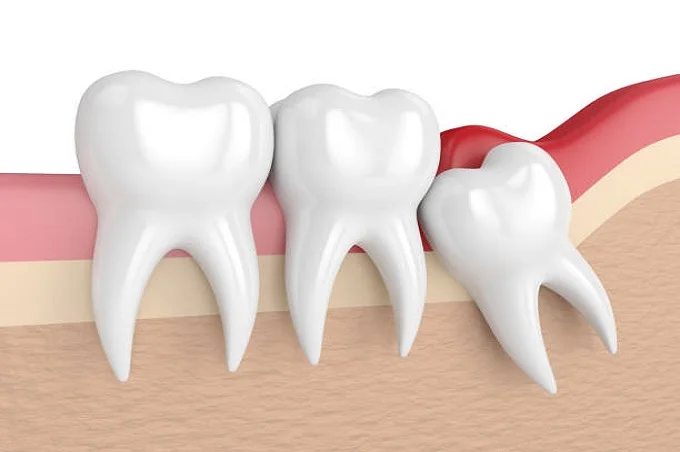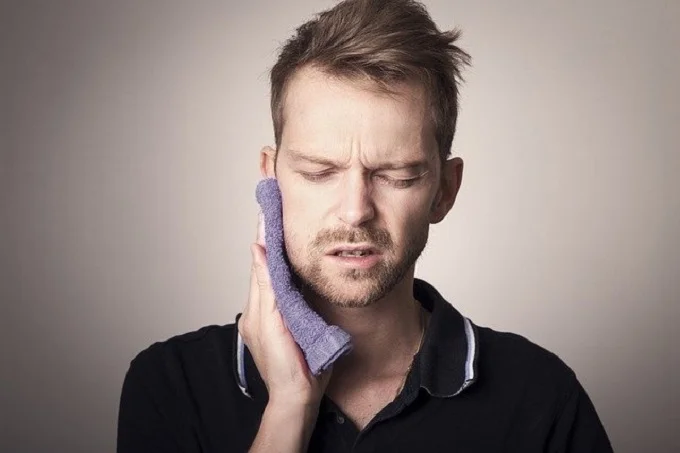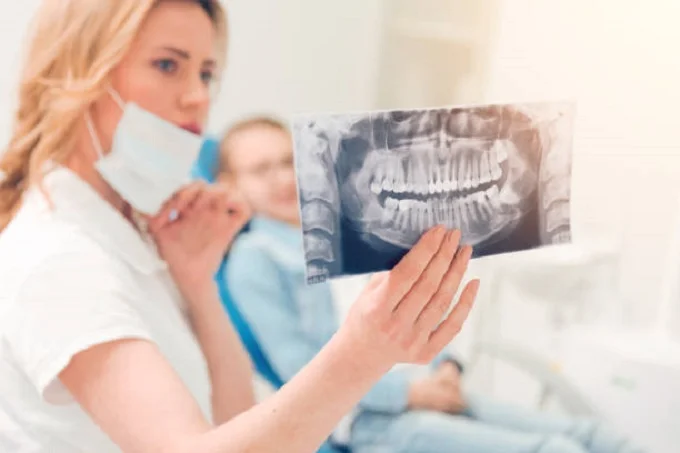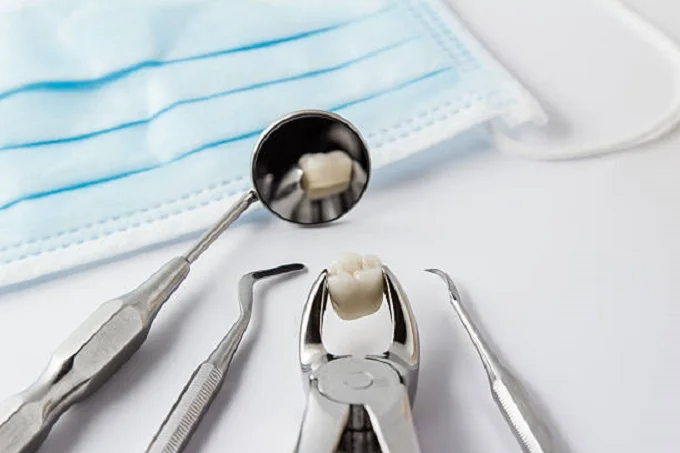Wisdom teeth: why do we need them and when should they be removed?

Wisdom teeth are located in the farthest part of the jaw. They may grow painlessly and cause no discomfort but are often associated with sharp pain and other aches. From this article, you will learn when it is worth treating them, in which case it is better to remove them and how this procedure goes.
Why do we need wisdom teeth, and why are they called that?
Wisdom teeth are called third molars or eights wisdom teeth. Historically, they got their name because they erupt at a more mature age.
They usually appear in people between the ages of 17 and 21. However, eights may not appear in everyone, or several of the four possible teeth may grow. This is quite normal: they may simply not form due to uselessness.
Our ancestors had larger jaws, and because of this, third molars were essential for chewing food. Plus, their food was tougher than ours. The modern man has a smaller jaw, and wisdom teeth are not so necessary for him. Today they can be considered just a memory of our distant ancestors, which often causes inconvenience.
Why do wisdom teeth problems occur?

The biggest problems with wisdom teeth arise from their location. For example, they may not have enough room in the jaw to grow. Because of this, they begin to grow crooked and cause pain. In addition, if wisdom teeth do not grow properly, this leads to other problems:
- they contribute to food getting stuck in the gums, which leads to caries;
- Partially grown wisdom teeth can cause swelling, stiffness of the jaw, and bacteria in the gums, leading to infections.
- they squeeze and adjacent damage teeth;
- an impacted wisdom tooth, that is, a fully formed and under the gum, can damage the roots of adjacent teeth.
When to remove wisdom teeth
If you notice that your wisdom teeth are growing, contact your dentist and take an x-ray of your jaw. This will help you understand if you need to delete them or not. Everything will depend on the position in which they grow up. If wisdom teeth do not interfere with the correct bite, do not create discomfort, and do not injure the cheek when chewing, they can not be removed.
But you need to remove them with these symptoms:
- acute and prolonged pain;
- infectious diseases;
- damage to neighboring teeth;
- gum disease;
- caries, if it is impossible or undesirable to restore the tooth.
Also, the dentist may recommend the removal of wisdom teeth when installing braces and other complex dental interventions.
How wisdom teeth are removed

It all starts with an x-ray – this is how the dentist will understand whether surgery is necessary and how to make it safe and effective. The procedure is performed using anesthesia and, in mild cases, takes no more time than the extraction of other teeth – about 20-30 minutes.
If the case is serious, more time will be needed and the use of antiseptics and anti-inflammatory drugs. It is necessary to suture the gum to speed up its healing in some situations. This usually happens if the wisdom tooth is deep under the gum and is difficult to remove.
To get the latest stories, install our app here
How to prepare for wisdom teeth removal
Be sure to tell your dentist ahead of time about any medications you take regularly. Some of them may require special treatment, such as selecting anesthesia and caution in its use. In addition, you should not give up tablets that you constantly drink on the day of the procedure – they must be drunk 2 hours before visiting the dentist.
Before removing teeth, you can not drink alcohol the day before and on the day of the procedure. It affects blood clotting and can lead to excessive bleeding of tissues around the tooth. Also, do not play sports and allow overheating of the body.
Another important point is that teeth should not be removed on an empty stomach. First, it can lead to fainting from the injection or anesthesia. Secondly, after tooth extraction, it is recommended not to eat food for 2 hours or longer to prevent bacteria from entering.
It is better to remove teeth on weekends when you have more recovery opportunities. And if after a while you experience discomfort, you should contact the dentist again.
Wisdom teeth removal recovery

After removing the wisdom tooth, it will be necessary to follow all the recommendations that the dentist will give you. Everything is selected strictly individually, depending on the complexity of the intervention, the condition of the teeth, and other factors. The main recommendations include:
- on the first day after the procedure, do not rinse your mouth. To recover faster, you can use herbal decoctions or special preparations that promote healing;
- to cope with swelling of the jaw after tooth extraction, it is recommended to apply cold to it, for example, an ice pack;
- it would help if you rested more in the early days: exclude active training or other activities that can contribute to active movements of the jaw and head;
- you will have to give up alcohol until the wound from the extraction of the tooth heals;
- you need to drink a lot of water;
- during the day after the procedure, you need to choose soft food. If pain persists or bleeding occurs, extend this diet for a few more days. You should also avoid hot, spicy, and sour foods;
- On the first day after the procedure, you can not brush your teeth and use dental floss. On other days, you need to monitor the cleaning of the brush from bacteria carefully;
- it would help if you stopped smoking for two days after tooth extraction. This habit can lead to slow healing or worsening after tooth extraction.
- Also, to avoid pain, it is recommended to drink liquids through a straw and chew with the healthy side of the mouth.




